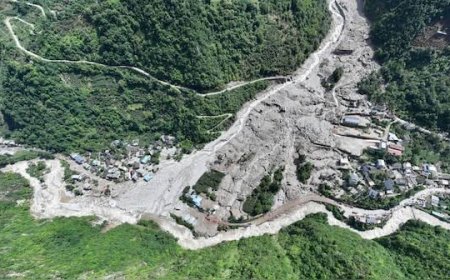Why is it not possible to provide judicial training to law graduates in Addis Ababa?
Law graduates in Addis Ababa face persistent barriers to entering the judicial system due to the unavailability of judicial training programs in the city. While graduates in regional states receive such training and are integrated into local judicial roles, Addis Ababa graduates are left behind. Attempts by Tikvah Ethiopia to contact relevant institutions revealed a lack of clarity, accountability, and coordination among government bodies.

Why Can’t Law Graduates in Addis Ababa Access Judicial Training?
Law graduates in Addis Ababa say they are being left behind. Unlike their peers in Ethiopia’s regional states, these graduates lack access to judicial training programs—opportunities that are often a direct path to careers as judges and prosecutors.
In interviews conducted by Tikvah Ethiopia, recent graduates expressed frustration and disappointment over this long-standing issue.
“The lack of judicial training has made many of us unemployed,” said one graduate. “Even those of us who do find jobs are unable to pursue the legal careers we actually studied for.”
The inequality, they say, is clear. In regional states, law graduates are provided with judicial training after graduation and often go on to work within their local justice systems.
“When students graduate in the regions, they are trained and employed there. But here in Addis Ababa, we don’t get that opportunity,” another graduate explained.
Some feel doubly disadvantaged. When federal or city-level job openings are advertised, they must compete with graduates from across the country—many of whom already have the judicial training that they themselves are denied.
“We’re expected to compete nationally, but we’ve never been given the same foundation or access,” said one graduate who asked to remain anonymous.
Government Institutions Offer No Clear Answers
To understand why this gap exists, Tikvah Ethiopia reached out to several government bodies, including the Addis Ababa Administration Justice Bureau, the Ministry of Justice, the Federal Law and Justice Institute, and the Ministry of Education. The search for answers revealed a troubling lack of coordination and accountability.
Ministry of Justice
A representative from the Ministry stated that judicial training is not a requirement for their recruitment process. They referred the matter to the Federal Law and Justice Institute.
They also noted that candidates who pass formal exams are eligible for on-the-job criminal law training provided by the Meles Institute—a process that many graduates say is not widely accessible or transparent.
Addis Ababa Administration Justice Bureau
Repeated efforts—both in-person and over the phone—failed to yield a clear response from the Justice Bureau. Officials either declined to comment or claimed the issue was outside their department’s responsibility.
“We were unable to get an official comment. None of the department heads we contacted were willing to speak on the matter,” our report reads.
Federal Law and Justice Institute
This institute confirmed that it no longer oversees judicial training. The responsibility, they say, has been transferred to the Ministry of Education.
Ministry of Education
Attempts to reach the Ministry for clarification on this transfer and to ask what judicial training programs—if any—are now available were unsuccessful.
A System in Limbo
In the end, what’s left is a system that Addis Ababa’s law graduates say has failed them—one in which no institution is taking clear responsibility for their professional development or employment future.
Their message is simple: if graduates in the capital are to have the same career opportunities as those in the regions, they must be given equal access to judicial training programs.
Until then, these aspiring legal professionals remain caught in limbo—educated, motivated, and waiting for a system that recognizes and supports them.
What's Your Reaction?
 Like
0
Like
0
 Dislike
0
Dislike
0
 Love
0
Love
0
 Funny
0
Funny
0
 Angry
0
Angry
0
 Sad
0
Sad
0
 Wow
0
Wow
0
























